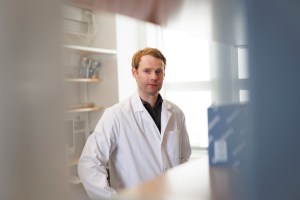Health
-
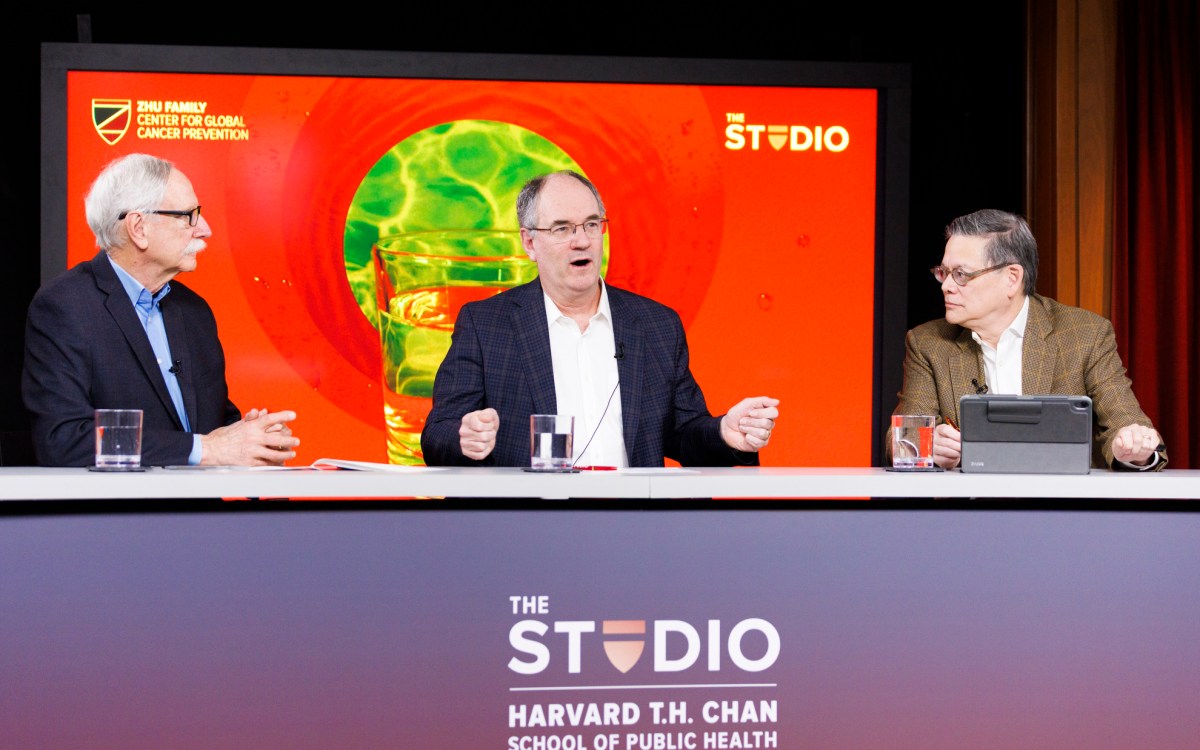
Which is worse, a soda or a beer?
Experts seek to clarify the health effects of alcohol and sugary drinks
-
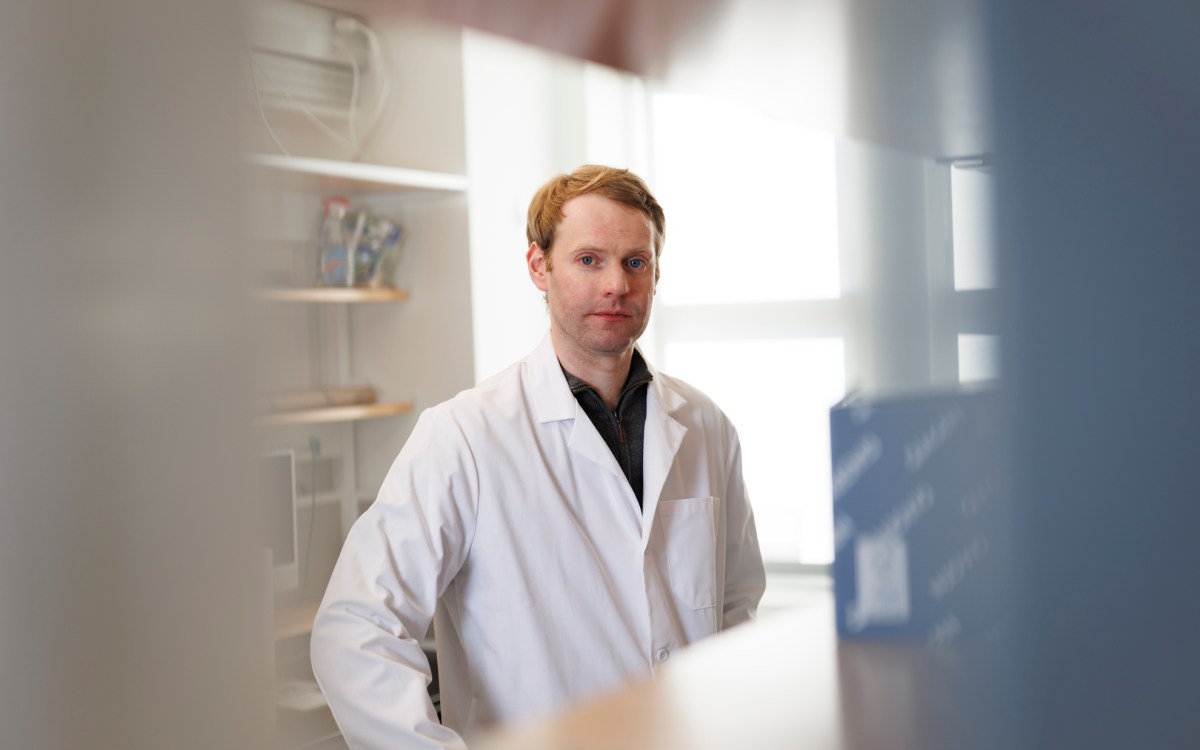
‘I think I know how to fix this.’
How a discovery in a Harvard lab is offering hope for patients with hard-to-treat heart disease

-
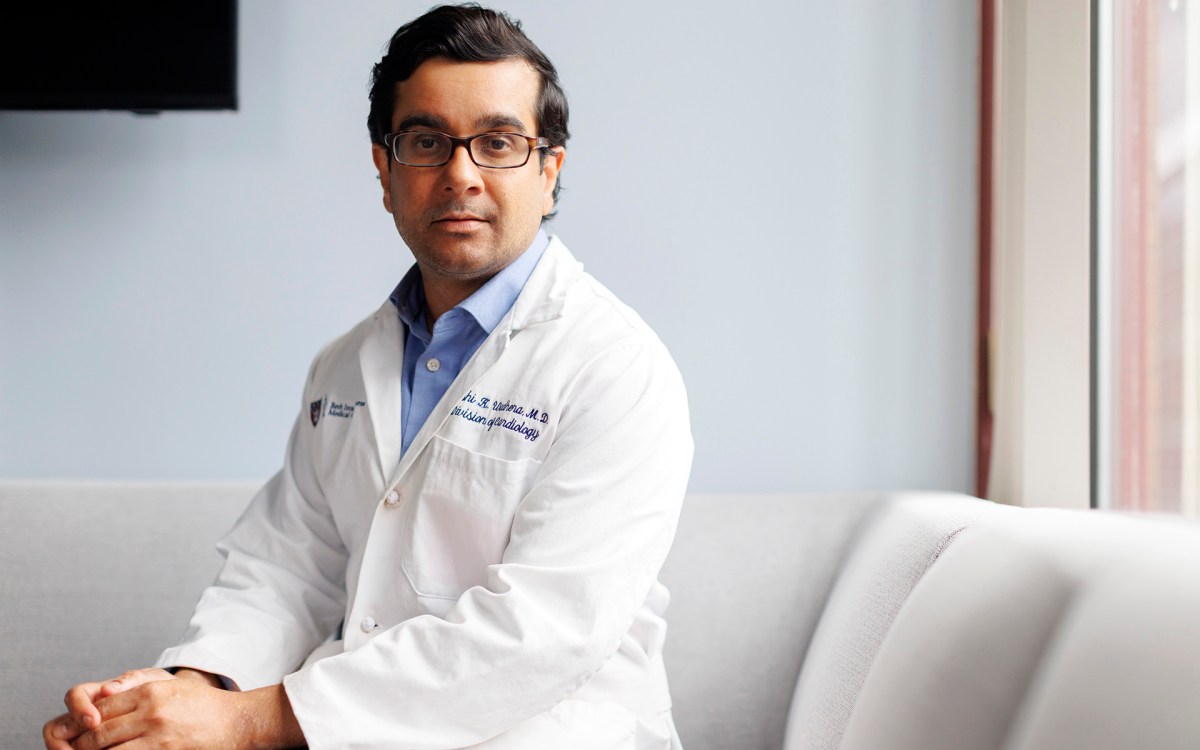
American heart health worsening
New statistical snapshot finds disappointing trend despite advances in treatment, ways to prevent nation’s leading cause of death

-
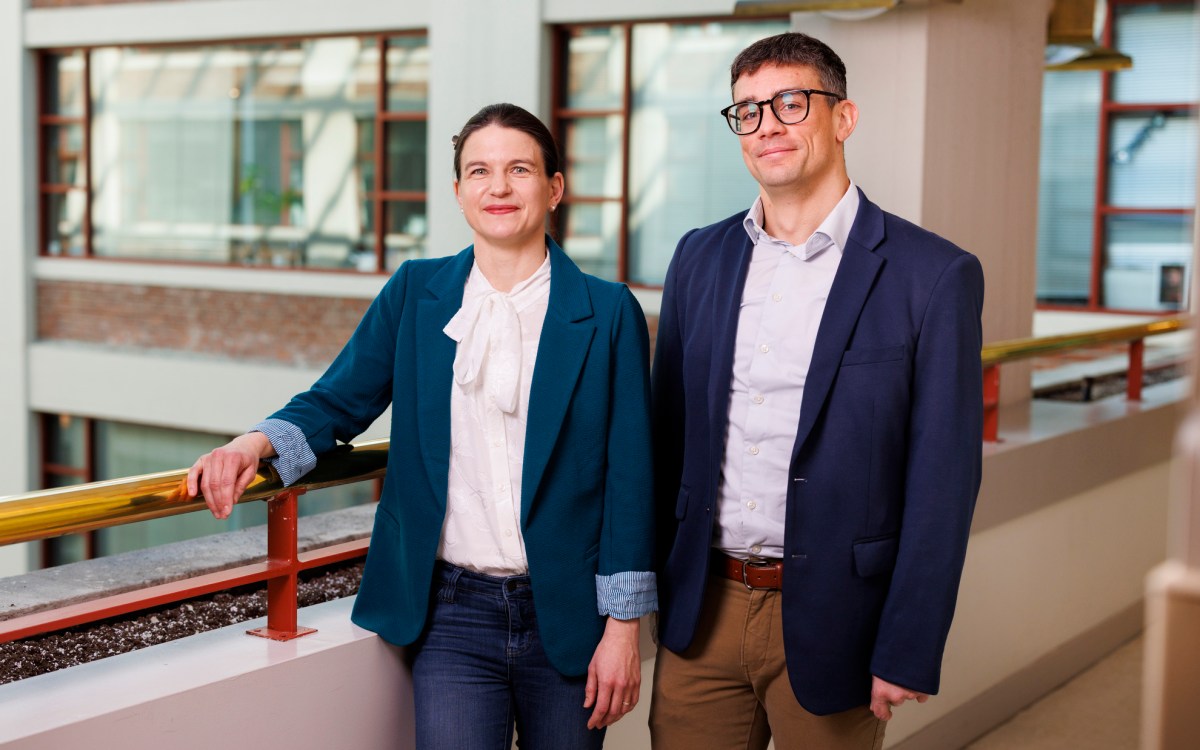
Tracking mysteries of loss of Y chromosome, cancer
Research suggests it may explain higher incidence, severity of some disease in men
-
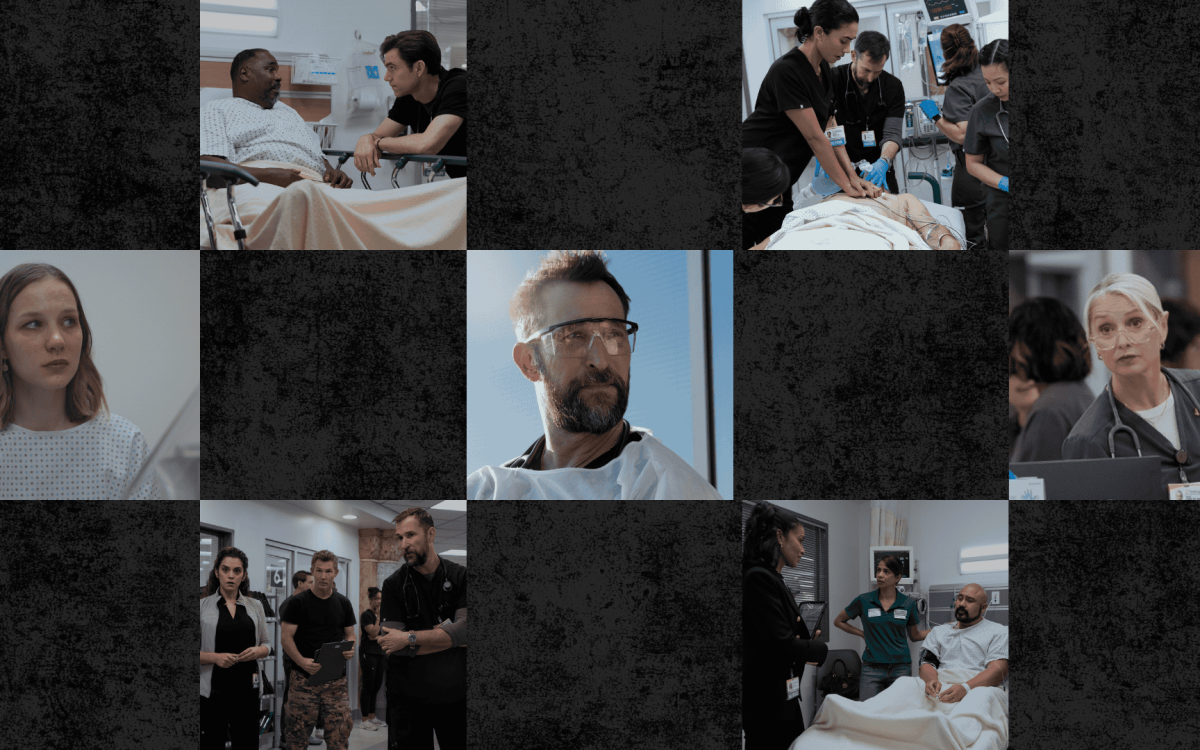
How realistic is ‘The Pitt’?
Doctors weigh in on what hit TV show gets right and wrong about life in the ER — from pacing and caseloads to workplace culture (and that waiting room from hell)
-

Yoga can help cut severe, initial opioid-withdrawal period in half, study finds
Researchers say results could dramatically increase chances of recovery
-
Kids too often prescribed antibiotics for sore throat
Each year, millions of children visit their family physician or pediatrician seeking treatment for sore throats. While a sore throat could indicate many common illnesses, physicians are often most concerned…
-
Bacterium present in eyes with ‘wet’ age-related macular degeneration
Age-related macular degeneration (AMD) is the leading cause of blindness in Americans over the age of 55. The majority of vision loss is due to neovascular AMD, the advanced form…
-
Study: No psychological or cognitive deficits from peyote
Researchers at Harvard-affiliated McLean Hospital report that Native Americans who use the hallucinogen peyote regularly in connection with religious ceremonies show no evidence of brain damage or psychological problems. In…
-
New findings help explain how brain pathways control body weight
A study led by a scientific team at Beth Israel Deaconess Medical Center provides another important step in our understanding of the critical role that the brain’s molecular pathways play…
-
Gingko may prevent ovarian cancer
Researchers at Brigham and Women’s Hospital have found initial laboratory and epidemiological evidence that, for the first time, demonstrates that ginkgo may help lower a woman’s risk of developing ovarian…
-
Sublethal force: New antibiotic aims to tame bacterial toxins
Using an innovative screening approach, researchers in the lab of John Mekalanos have identified an entirely new class of antibiotics active against the cholera bacterium. While traditional antibiotics kill bacteria…
-
Barrier found to nerve regeneration
Scientists have long dreamed of prompting adult neurons of the central nervous system to regenerate. But these cells have the deck stacked against them in several ways. Molecules from the…
-
An existing diuretic may suppress seizures in newborns
A diuretic drug called bumetanide may serendipitously help treat seizures in newborns, which are difficult to control with existing anticonvulsants, according to a study in the November 2005 Nature Medicine.…
-
Zoologist says in animal kingdom, less is more
Harvard researcher Piotr Naskrecki hopes his new book, “The Smaller Majority” (Harvard University Press, 2005), will win over some new advocates for the tiny creatures he has spent his life…
-
Dietary fat intake linked to dry eye syndrome in women
Dry eye syndrome is characterized by a decline in the quality or quantity of tears that normally bathe the eye to keep it moist and functioning well. The condition causes…
-
Herceptin treatment lowers recurrence rate in early breast cancer
Encouraging findings came from an interim report from HERA, an ongoing large, international clinical trial of Herceptin, published Oct. 19, 2005 in the New England Journal of Medicine. The analysis…
-
Study finds vaccines boost the economies of poor countries
A study determined that previous measurements of the benefits of immunization have generally underestimated their economic value by focusing solely on health-related impacts such as averted illnesses, hospitalizations, deaths, disability,…
-
Special delivery brings fats to immune system
It was both unexpected and unsurprising when, in the mid -1990s, Michael Brenner, the Theodore Bevier Bayles professor of medicine, and his colleagues showed that some antigen- presenting cells display…
-
Vaccine may clear Alzheimer’s brain plaques
While there is still no consensus about the role of waxy amyloid plaques that fill the brains of Alzheimer’s patients, many in the field believe they are a root cause…
-
Brain injury reversed in animal model of AIDS
Depending on the circumstances, missing N-acetylaspartate (NAA) in the brain may indicate Alzheimer’s disease, ischemic stroke, a brain tumor, or traumatic injury. And, as doctors soon learned with the AIDS…
-
Ivory-billed woodpecker: Ornithology’s holy grail
Tim Gallagher and Bobby Harrison almost flopped into the mud of Arkansas’ Bayou de View in their haste to get out of the canoe. They crashed through the undergrowth after…
-
Double trouble: Cells with duplicate genomes can trigger tumors
So-called “double-value” cells are produced by random errors in cell division that occur with unknown frequency. The generation of these genetically unstable cells appears to be a “pathway for generating…
-
Stroke patients with mild symptoms may still need clot- dissolving drug
“Our primary finding was that about 30 percent of those patients judged ‘too good to treat’ either died or were discharged to a rehabilitation facility,” says Eric Smith, MD, FRCPC,…
-
High blood glucose levels in early pregnancy may deprive embryo of oxygen
Research appearing in the October 2005 issue of the American Journal of Physiology: Endocrinology and Metabolism suggests that high blood glucose levels early in pregnancy deprive the embryo of oxygen,…
-
Survey shows Harvard doctors practice what they preach
In the 30th anniversary year for the Harvard Health Letter, the editors decided to revive a tradition and ask Harvard doctors whether they follow their own advice – two similar…
-
How ant (and human) societies might grow
Pellegrino University Professor Emeritus Edward O. Wilson remains fascinated with the highly organized societies of ants, bees, wasps, termites, and humans. He and Bert Holldobler, with whom he shared a…
-
Health care reform in China discussed
Health care in the People’s Republic of China is unequal and too expensive, and there’s not enough of it, but the Chinese government is aware of the problems and is moving to address them, China’s vice minister of health said Sept. 8 at Harvard Medical School.
-
Learning how the SARS virus spikes its quarry
Structural images that show how the SARS virus’s spike protein grasps its receptor may help scientists learn new details about how the virus infects cells and could also help in…
-
Depression linked to previously unknown dopamine regulator
Li-Huei Tsai, Harvard Medical School (HMS) professor of pathology, HMS research fellow Sang Ki Park, and colleagues worked with mice and found a novel function for the molecule Par-4 (prostate…
-
Critical step traced in anthrax infection
An anthrax bacterium secretes three nontoxic proteins that assemble into a toxic complex on the surface of the host cell to set off a chain of events leading to cell…
-
Study identifies fat-secreted protein linked to insulin resistance
According to senior author Barbara B. Kahn, M.D., chief of the Division of Endocrinology, Diabetes, and Metabolism at BIDMC, these findings in mice and humans show that elevated levels of…
-
Home from the hospital: almost half of patients are discharged with test results still pending
According to Christopher Roy, M.D., a hospitalist at BWH who studies patient safety, “We found that while approximately half of the patients in this study had test results that were…
-
Bacterium proves essential to immune system development
In the July 15, 2005 Cell, a team led by Dennis Kasper, the William Ellery Channing Professor of Medicine at Brigham and Women’s Hospital and professor of microbiology and molecular…
-
Molecular middleman puts thyroid hormone in developmental signaling pathway
Tissues such as muscle and brain convert the inactive form of thyroid hormone, T4, into T3, the active form of thyroid hormone, when necessary. In the 1980s, researchers discovered that…
-
Subtle changes in normal genes implicated in breast cancer
Scientists found that benign cells surrounding breast cancers undergo epigenetic modifications. The altered gene function causes the microenvironment cells to signal proliferation and increased aggression in the breast tumor cells.…

